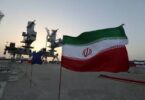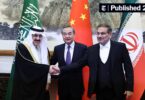According to the media, the Malaysia’s prime minister has dissolved the parliament to clear the way for snap elections in a bid to restore political stability in the East Asian Muslim majority country. According to the details, Prime Minister, Ismail Sabri Yaakob was facing tremendous pressure from with in his party ranks to desolve the parliament and secure an absolute majority through early election to evade the ravages of Covid-19 pandemic and a multi-billion dollar corruption scandal.
Malaysia hit by a severe political crisis after several Members of Parliament (MPs) changed their political allegiance from one political party to another group which led to the collapse of the two successive governments in less than past 18 months. Interestingly, Malaysia has been ruled by a single political group, the United Malays National Organisation (UMNO) over the past six decades while sitting Prime Minister also belongs from the same political clan. Prime Minister Ismail has been ruling the country through a coalition of few parties after former Prime Minister Najib was awarded 12 years imprisonment for his involvement in a mega corruption case. Ismail had been facing challenges regarding adoption of legislation due to a lack of majority in the Parliament while coalition partners were not ready to give him free hand. Although, General polls were not due until September next year but the so-called saviors of Malaysian people were so impatient that they opted to smash the assembly instead wait for the maturity of its term.
Presently, the future political landscapes of Malaysia are uncertain and a hung coalition or a weak single party government is likely the outcome of upcoming elections , because the major Malaysian political group and ruling UMNO has been divided into factions in post Najib era, while opposition is disunited and lacks a meaningful agenda that attract public support and push it towards a sweeping victory in the upcoming grand finale. The months long political instability has badly hurt Malaysian society, businesses as well as political institutions while people demand peace and tranquillity so they can live and work in a peaceful healthy environment. Although, Malaysian King and the masses have genuine desires for peace but their future will be governed by the politics of their leaders, who usually uphold their interest instead of public will.






